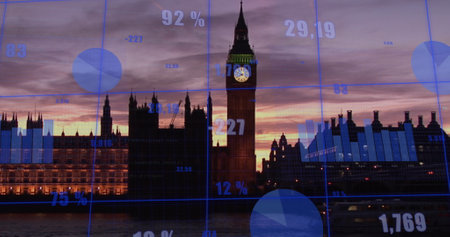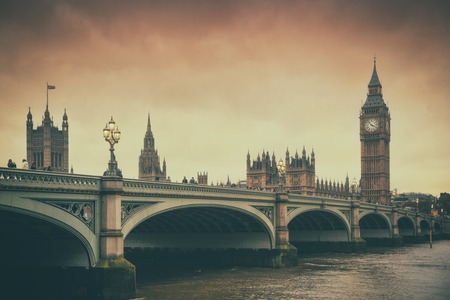Introduction to Energy Healing in the UK
The landscape of energy healing in the United Kingdom is as intricate and vibrant as its centuries-old traditions. Rooted in ancient wisdom, yet continually evolving to meet the needs of modern society, energy healing has woven itself into the rich cultural fabric of British life. From the gentle hands-on techniques reminiscent of historic folk practices to the more contemporary modalities inspired by global influences, energy healing in the UK is both a personal journey and a collective phenomenon. Over time, these practices have found resonance among those seeking harmony and well-being beyond conventional medicine, reflecting a growing openness within British culture to holistic approaches. Today, whether nestled in bustling London clinics or offered quietly in rural retreats, energy healing stands at the intersection of tradition and innovation, inviting us to explore not only its transformative potential but also the legal and professional frameworks that now guide its practitioners across the country.
2. Legal Framework Surrounding Energy Healing
When we step into the realm of energy healing in the United Kingdom, we are greeted by a complex yet thoughtful legal tapestry woven to protect both practitioners and the public. Unlike conventional medical professions, energy healing is not governed by a single statutory regulatory body. Instead, it sits within a web of common law, consumer protection statutes, and voluntary self-regulation. Let us journey through this landscape with mindful awareness of the key regulations and professional boundaries that shape ethical practice.
The Current Legal Landscape
Energy healing modalities—such as Reiki, crystal healing, and chakra balancing—are considered complementary therapies in the UK. These practices are legal; however, they must operate within specific legal boundaries:
| Aspect | Legal Status / Requirement |
|---|---|
| Professional Registration | Voluntary through professional associations (e.g., CNHC, UK Healers) |
| Advertising Standards | Subject to ASA guidelines; claims must be evidence-based |
| Consumer Protection | Protected under Consumer Rights Act 2015 and Trading Standards |
| Treatment of Medical Conditions | Cannot claim to cure or treat medical conditions unless appropriately qualified and registered with relevant statutory bodies (e.g., GMC for doctors) |
| Data Protection & Confidentiality | Must comply with GDPR and Data Protection Act 2018 regarding client information |
| Insurance Requirements | Public liability and professional indemnity insurance strongly recommended or required by most associations |
Consumer Protection: Safeguarding Client Wellbeing
The heart of UK law surrounding energy healing lies in consumer safety. The Consumer Rights Act 2015 ensures that clients are protected from misleading claims or unsafe practices. Practitioners must provide clear information about their services, including scope, fees, and any potential limitations. Claims about health benefits must align with Advertising Standards Authority (ASA) codes—assertions of curing diseases or replacing medical care are strictly prohibited unless backed by robust clinical evidence.
Practitioner Boundaries: Ethical & Legal Responsibilities
A responsible energy healer maintains clear professional boundaries. This means respecting client autonomy, never exerting undue influence, and keeping all client information confidential in line with GDPR requirements. Furthermore, practitioners should always refer clients to qualified healthcare professionals when presented with serious or undiagnosed conditions. It is both a legal expectation and an ethical imperative.
A Mindful Approach for Practitioners in the UK
Navigating these laws demands discernment, integrity, and ongoing self-reflection. By honouring both the letter and spirit of UK legal frameworks, energy healers can cultivate trust, uphold high standards of care, and contribute positively to the wellbeing of those they serve.

3. Professional Standards and Codes of Ethics
In the heart of the United Kingdom’s energy healing community, a tapestry of professional standards and ethical codes guides practitioners on their journey. At the core, energy healers are called to uphold values such as integrity, respect, and compassion—principles that form the very foundation of any reputable practice. These standards are not merely guidelines; they are a living promise to clients and society at large, ensuring that each interaction is rooted in trust and responsibility.
The Core Values of Energy Healers
Energy healing in the UK draws deeply from traditions that honour both ancient wisdom and modern insight. Practitioners are expected to act with honesty, maintain confidentiality, and foster empowerment in those they serve. These core values manifest through careful listening, non-judgemental presence, and an unwavering commitment to the highest good of each client.
Ethical Guidelines: A Moral Compass
The ethical landscape for energy healers is shaped by clear boundaries around consent, transparency about methods used, and honest communication regarding limitations or potential outcomes. Healers must avoid claims that could mislead or give false hope, especially regarding medical conditions. Informed consent is paramount—clients should always feel free to choose, question, or discontinue treatment without pressure.
The Role of Major UK Associations
Associations such as The Complementary and Natural Healthcare Council (CNHC) and The UK Reiki Federation play a pivotal role in upholding these professional standards. They provide accreditation, offer continuing professional development, and require adherence to robust codes of ethics. Membership often signals to clients that the practitioner has met recognised benchmarks for skill and conduct. Through ongoing education, peer support, and disciplinary processes when necessary, these bodies help safeguard both practitioners and the public.
In essence, the professional standards and codes of ethics in UK energy healing reflect a collective intention: to hold space for transformation while honouring safety, autonomy, and dignity for all involved.
4. Registration and Accreditation
Within the United Kingdom, the journey to becoming a recognised energy healer is as much about personal integrity as it is about professional recognition. Unlike some traditional healthcare professions, energy healing remains largely self-regulated, yet this does not mean the landscape is unstructured. Rather, it thrives on voluntary registration and accreditation processes that foster trust and accountability within the wider spiritual community.
Practitioners seeking credibility often turn to established bodies for guidance and validation. These organisations act as anchors in the evolving realm of spiritual and energy healing, offering frameworks that balance freedom of practice with ethical responsibility.
Recognised Accreditation Bodies
| Accrediting Body | Role in Energy Healing | Key Standards & Offerings |
|---|---|---|
| The Complementary and Natural Healthcare Council (CNHC) | Regulates complementary therapists including some energy healers | Voluntary register, code of conduct, public assurance of standards |
| The British Alliance of Healing Associations (BAHA) | Umbrella body for spiritual healers | Guidance, practitioner registers, continuing professional development |
| The Healing Trust (formerly NFSH) | Specialist in spiritual healing accreditation | Structured training, assessment, ongoing support for healers |
| The UK Reiki Federation | Main body for Reiki practitioners | Best practice guidelines, practitioner directory, regulatory updates |
The Value of Voluntary Registration
While there is no statutory requirement for energy healers to register with these bodies, many choose to do so. Why? Because in a world where subtle energies are not always easily seen or measured, the reassurance of formal recognition can be a beacon for both practitioners and clients. Registered healers demonstrate commitment to upholding high standards—ethically, practically, and spiritually—while also gaining access to ongoing learning opportunities and peer networks.
The Practitioner’s Journey: From Passion to Profession
This process is not just a box-ticking exercise; it is an act of devotion—a way for each healer to honour their calling while weaving their gifts into the fabric of British holistic care. By aligning with reputable bodies, practitioners help elevate the perception of energy healing within society at large. They become part of a tapestry that blends ancient wisdom with contemporary responsibility, ensuring that every session offered is rooted in respect and trust.
5. Client-Practitioner Relationships and Informed Consent
Within the sacred sanctuary of energy healing in the United Kingdom, the relationship between practitioner and client is woven from threads of trust, transparency, and profound respect. It is here, in this subtle dance of energies, that the importance of clear communication becomes illuminated—a guiding light for both healer and seeker. UK professional standards emphasise that practitioners must foster an environment where clients feel seen, heard, and safe to explore their own healing journey.
Trust is not given lightly; it is cultivated through genuine presence and ethical conduct. Practitioners are called to honour the individuality of each client, upholding confidentiality and maintaining appropriate boundaries at all times. The laws governing energy healing in the UK require that informed consent be at the very heart of every session. This means practitioners must ensure clients understand the nature of the healing work, its potential benefits and limitations, as well as any risks or alternative options available.
Transparent communication forms the bridge over which healing travels. Before a session begins, practitioners should clearly explain their methods, outline what clients can expect, and invite questions without judgement. This exchange not only empowers clients but also anchors mutual respect within the therapeutic space. Written consent is encouraged by many UK professional bodies—not just as a legal safeguard, but as a sacred agreement affirming the client’s autonomy and willingness to participate.
The energetic field shared during a session is sensitive to intention and openness. When trust and consent are present, healing can unfold in its most luminous form. Practitioners who align with these standards—listening deeply, communicating honestly, and seeking consent—become stewards of a space where transformation is possible.
In essence, upholding trust, clarity, and informed consent within energy healing sessions is more than a regulatory requirement; it is a spiritual practice that honours the dignity of every individual who steps into this realm.
6. Navigating Challenges and Controversies
Energy healing in the United Kingdom occupies a unique place at the crossroads of ancient wisdom and modern regulation. Yet, despite its growing presence, practitioners and clients alike must tread with care through a landscape marked by both promise and polarisation.
A Compassionate Look at Key Debates
The energy healing sector is no stranger to debate. Public perception remains mixed: for some, energy work offers hope where conventional medicine has fallen short, while others dismiss it as unscientific or even risky. This dichotomy can create tension, especially as more people seek holistic alternatives to mainstream healthcare.
The Challenge of Misinformation
Misinformation is one of the greatest hurdles facing the community. In an era awash with online content, not all advice is grounded in fact or ethical practice. Unqualified individuals may make grandiose claims about cures or miraculous transformations, which can undermine trust and jeopardise client safety. The UK’s professional bodies encourage practitioners to communicate clearly, avoid exaggerated statements, and always signpost clients to appropriate medical care when needed.
Integration with Mainstream Health Care
Another ongoing discussion revolves around how energy healing fits within the broader health landscape. While some NHS trusts have experimented with complementary therapies, there remains hesitation regarding standardisation and evidence-based outcomes. Many responsible healers advocate for open dialogue with medical professionals, aiming to support—rather than replace—conventional treatment.
Cultivating Respectful Collaboration
True progress lies in respectful collaboration. By fostering transparent conversations between healers, clients, and healthcare providers, the sector moves toward greater legitimacy and understanding. As British culture values both tradition and innovation, there is fertile ground for integrative approaches that honour spiritual intuition while upholding rigorous professional standards.
7. Continuing Professional Development
In the dynamic landscape of energy healing within the United Kingdom, the journey does not end with initial training or accreditation. Continuing Professional Development (CPD) stands as a cornerstone of professional integrity and client trust, reflecting a healer’s dedication to lifelong learning and self-evolution. In the UK context, CPD is not merely encouraged—it is often expected by governing bodies, insurance providers, and discerning clients alike.
The Importance of Ongoing Growth
Energy healing, like all holistic practices, evolves alongside advances in research, shifts in societal needs, and the collective awakening of consciousness. Healers committed to their own development are better positioned to serve clients safely and effectively. Regular CPD ensures practitioners remain aware of updates in legal frameworks, ethical standards, and emerging modalities unique to the UK landscape. This commitment signals professionalism and a willingness to embrace both ancient wisdom and contemporary insights.
UK-Specific Resources for Practitioners
The UK boasts an abundance of resources tailored for energy healers seeking ongoing development. Esteemed organisations such as the UK Healers, Complementary and Natural Healthcare Council (CNHC), and local colleges regularly offer accredited workshops, webinars, supervision groups, and specialist conferences. Many of these bodies require documented CPD hours for membership renewal—an affirmation that your practice aligns with evolving best practices.
Recommended Practices Unique to the UK
To weave CPD seamlessly into your path as an energy healer in Britain, consider engaging in:
- Regular attendance at regional or national energy healing conferences
- Participating in peer supervision and reflective practice sessions
- Keeping abreast of legal updates through official bulletins from the CNHC or local councils
- Enrolling in advanced courses on trauma-informed care or diversity awareness—topics increasingly valued in UK healthcare settings
By embracing these practices, you honour not only your own growth but also the sacred trust placed in you by those who seek healing under your care.
Continuous learning is both a privilege and a responsibility—a dance between tradition and innovation that keeps your energy healing practice vibrant, ethical, and aligned with the highest standards recognised throughout the United Kingdom.

